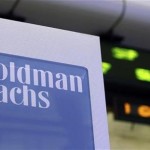
Belittling and attacking Greg Smith, the ex-Goldman derivatives trader, who wrote about his personal experiences and opinions based on working at Goldman Sachs, has become a cause celeb.
But comments from reporters who cover Wall Street show some serious prejudices and deficiencies in their journalistic perspectives.
First, attacking Mr. Smith is not good journalism. Mr. Smith’s New York Times article was an op-ed, an opinion piece. Surely, editors and reports don’t want to penalize Mr. Smith for voicing his opinion? Secondly. Mr. Smith has been belittled because these same editors and reporters claim Mr. Smith forgot that Goldman Sachs was all about making money. Well, so were Krupps and Dow Chemical (which made napalm during the View Nam war). They profited from wars, which most people find abhorrent. Goldman contributed largely to the severe recession and subsequent federal bailout by its risky OTC, mortgage-related derivatives. Ask AIG head Hank Greenberg how Goldman treated him as a customer.
Finally, editors and reporters should recognize the benefits of whistle blowers in any industry since they invariably know more than the editors and reporters, who cover the industry. Mr. Smith is no whistle blower; he only voiced his opinion. By all accounts, he is intelligent and rose to become a top manager based on his exceptional abilities. As a 30-something professional, he also reportedly made about $600,000 a year, which is much more than 99% of all reporters, including those who criticized him. So if he was only concerned about the money, why rock the boat?
Obviously, there was something more at work here and it did not conform to the Wall Street media’s worldview. Unfortunately, this says more about the sad state of the financial media than Mr. Smith. And this may be the bigger story here, rather than the one about one individual’s opinion about his company’s management and treatment of its clients.
What’s Wrong With the Financial Media
As the former managing director of marketing for the NYSE’s futures exchange (the NYFE), I broke the story about former NYSE Chairman John Phelan’s $10 million secret bonus when he retired in about 1993. I could not interest any Wall Street media in that story, so it appeared in a London futures trade publication. I got paid $200. It was then picked up by a New York trade publication (Investment Dealer’s Digest) and then it appeared on page 3 of the Wall Street Journal.
So, my lesson is that the closer you are to Wall Street, the more important your editors and reporters think they are. Inflated self-importance and vanity come easily to many who cover Wall Street. Rather then focusing on the news event (Phelan’s secret bonus), I became the accused, after all, who would ever criticize the NYSE? (I remember one female NYSE board member even called me “impertinent” for even asking about the salary of the top executive of this semi-public institution.) Had there been more media attention about this small bonus in the early-1990s, it could have re-shaped the entire subsequent discussion about executive compensation and wage disparities, which has become so critical today.
So defending Goldman is really just a selfish self-defense mechanism that blinds many editors and reporters to widespread conflicts-of-interest and even mass fraud right in their own backyard. Sure Goldman is about making money, but so were Enron, Global Crossing, WAMU, Bank of America and the rest of the infamous names that imploded and caused billions in losses to shareholders and U.S. taxpayers.
Then, there is also the mean-spirited attack that says Mr. Smith’s exercise of his First Amendment rights will end his career. These same reporters and editors should remember the equity analyst scandal of 2000 in which equity analyst were forced or voluntarily complied with demands from their firm’s investment bankers to promote a company (often high-tech) based on false promises and fake profit projections. This widespread fraud by many Chartered Financial Analysts (ask Henry Blodget and Mary Meeker) and corrupt investment bankers helped cause the 2000 tech bubble and related recession.
But here again, there were some analysts who refused to co-operate with the intimidation and false claims. Some were fired and demoted, but there were a small number, who were highly ethical and refused to co-operate with the fraud. There is even a notable case of an analyst who criticized Donald Trump’s Atlantic City casino investment, and was fired after Trump protested his financial analysis. The analyst was demoted, but he was right: the Trump investment lost money.
Sadly, too many of these firms failed to recognize the courage of people who are critical of their management, and this continues today. This is a blatant misuse of power and shows poor executive leadership. America’s largest corporations rhetorically claim their organizations are open via their Town Hall meetings, but anyone who has ever attended one knows they are just exhibitions. Large corporations are not designed to handle serious complaints since they reflect poorly on management. This scenario is as old as the hills. Shoot the messenger and all is well. At mutual fund company meetings I attended, any discussion of fees and expenses was verboten, while individual investor concerns were never mentioned. This helps explain why fund expense ratios at the largest fund companies never are reduced even as assets under management increase. Mr. Smith presumably saw this same abuses over his 15-year career at Goldman. Now, the media and others consider him the messenger, but they wantonly disregard his message.
No Retribution Needed
Then, there are the calls for Mr. Smith to never work on Wall Street again. This is the retaliation side of Wall Street, and it helps foster the “business as usual” victimization of corporate, institutional and the most uninformed individual investors. These are the uninformed who buy high-fee annuities, under-performing actively-managed mutual funds, and even billions in exotic OTC derivatives.
In all these cases, the investor-customer relies on the supposed higher knowledge of the investment professional who is selling the product to provide the “best” advice. But when a professional sells ill-suited, deficient, inappropriate or overly expensive products, they have violated their basic duty. This applies even when there is no fiduciary standard in place, and it helps explain why the large fund and brokerage firms are fighting the adoption of the higher fiduciary standard. Being ethical applies to selling clothes, food, or something as important as an investment to unsuspecting buyers. Mr. Smith saw this and voiced his opinion.
The Bible (Leviticus 19:14) says: “You shall not curse the deaf nor place a stumbling block before the blind.” This relates to giving bad advice to another or causing harm in any way to the unsuspecting. It is 2,000-year-old advice, and it is just as important today.
As more comes out about Goldman’s trader culture, which victimizes the less-informed, but sticks them with all the risk, commissions and fees, I bet these same editors and reporters will owe Mr. Smith an apology. He certainly deserves one










